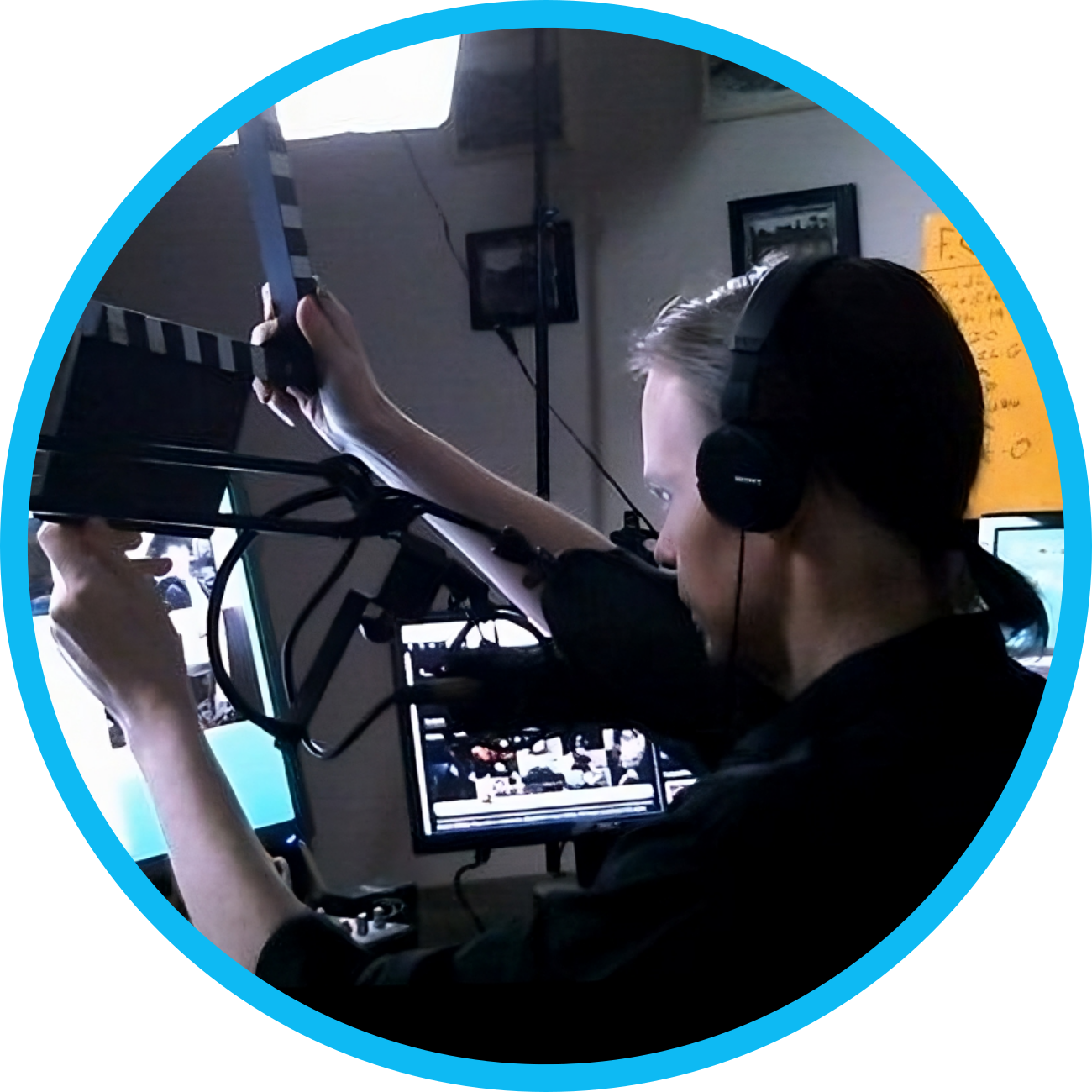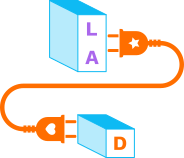Linux Audio Development (LAD)
Venn Stone
Linux Audio artist interview with Venn Stone

This interview was conducted by Amadeus Paulussen in 2025.
Dear Venn, thank you for taking the time to answer my questions. 🙂
I primarily know you from your Interfacing Linux YouTube videos and your iconic voice. Can you tell us a little more about yourself and your activities around Linux?
Thanks for the kind words. I’m Venn, and most of what I do these days revolves around making Linux approachable for audio, video, and general content creation. My background is as a technical producer and recording engineer, but in a past life, I was crawling around data centers installing big iron.
Over the last 15 years, my curiosity about how far Linux can be pushed for creative work turned into a hobby of writing guides, which eventually grew into Interfacing Linux. Outside of YouTube, I spend a lot of time testing hardware and documenting workflows. The goal being to help others avoid the same pitfalls I ran into when I was starting out.
How do you feel about the state of Linux Desktop and Linux Audio in late 2025?
Linux on the desktop and for audio in 2025 is in a weirdly good place. Things actually work more often than they don’t, hardware mostly behaves, and the audio stack… Well, PipeWire is getting there.
Although I am passionate to see more vendors offering native plugins for Linux, I sometimes consider the limited range of vendors on the platform a blessing, too. This with Windows and macOS in mind, with their seemingly out of control plugin related marketing bubble, subscription plans, installers/downloaders, iLok, etc. Can I ask you what your take on all of this looks like?
I don’t give it much thought, outside of reminding people that their DRM-encumbered plugins probably won’t work on Linux (yet), and that they should stick to macOS or Windows. As for myself, I avoid rent-seeking software like the plague.
Would you go so far as to predict further growth for the Linux Desktop, and Linux Audio market in particular?
Windows will continue to dominate the desktop PC market as long as manufacturers ship it by default. The challenge isn’t getting someone to try Linux; it’s asking them to install an operating system from scratch. There is no realistic timeline in which PC users will self-install a new operating system en masse.
Do you think that the nature of Linux users might influence the kinds of vendors and plugins coming to Linux, and that we will mainly see products without subscriptions, and without downloaders/installers, appearing for Linux in the near future? Fortunately, we don't even need to talk about iLok, as it isn't even available for the platform.
What we’ll see is WINE and tools like YABRIDGE becoming good enough that bringing over your existing Windows plugin library will be relatively seamless, even the ones that use iLok.
Like what Valve did with Proton and the Steam Deck. Back in 2014, they tried the native route, getting developers on board with Linux for Steam Machines, and it ended predictably. Many of those ports never worked well, and some no longer run on modern Linux systems. Today, we play most of those games via Proton running the Windows version because it simply works better.
There is a lesson in that for audio plugins. Native Linux versions without proper support risk the same fate. Compatibility layers may end up being the most practical route for users and developers.
What kind of music are you making, and where can people listen to it?
Nothing at the moment.
Can you tell us something about your studio, your computer, and the equipment you are using?
The studio DAW is a Ryzen 5600G paired with an RME AIO Pro. The streaming PC is a first-generation Threadripper loaded with Blackmagic capture cards. Everything is connected through various satellite PCs, and the audio stack is tied together using Netjack2 over a fiber network. Most of it is controlled with a Behringer X-Touch Compact and a Stream Deck wired into Bitfocus Companion.
Another thing I'd like to ask you: What distribution (if you have a permanent choice) and DAW are you using, and why?
Production systems should be predictable and stable. Debian manages both.
Reaper is my DAW of choice for two reasons. The big one being stability, I have well over a thousand hours logged using it as a digital mixer while streaming, and it's never let me down. Can't say the same for Ardour or Harrison Mixbus. The other is the tools developed by the Reaper community for live use.
Does the fact that you use Linux ever pose an issue when collaborating with others?
I don't believe that's ever come up.
Sometimes I think that I've learned so much about Linux over the last couple of years that it might have clouded my judgment about the actual state of Linux Desktop and Linux Audio. I mean, I'm really happy with my system, and I know what to do in most cases. However, due to the fact that I am so deeply involved with the software I am using on an everyday basis, I've also developed a certain tolerance for imperfections, such as how most plugins behave when scaled on Linux. What are your thoughts on this?
Years spent dealing with Linux and audio workflows can cause you to develop a tolerance for quirks. Things like plugins behaving oddly when scaled or random UI hiccups. The danger is thinking that “this is fine for everyone.” It's not, not even a little bit.
Is there a Linux myth you would like to debunk here and now?
Not all Linux users are culty weirdos with a disproportionate chunk of their identity wrapped up in an operating system.
Are there many other Linux users among people who you collaborate or work with?
It rarely comes up in conversation, but most people I deal with in the tech field have some working knowledge of Linux.
Is your work around Interfacing Linux your main job, or more kind of a side project for you?
It’s a hobby and a mission. Someone needed to start work on a knowledge base for future creators that isn’t scattered across archived mailing lists, forum posts full of guesswork, YouTube comments, and Discord servers.
I sometimes get the impression that some long-term Linux Audio users are somewhat frustrated, or perhaps disillusioned, and consider initiatives like Linux Audio Development (LAD) basically a waste of time. What is your personal view on this?
If you believe in something, be the change. It might be a waste of time, or it might not, but you won’t know until you put things in motion.
Can you share something about your plans for the future?
For the immediate future, my primary goal is to grow the YouTube channel and website. To attract vendors like AMD or MOTU, I need to be able to show solid numbers, so I can get into the review sample pipeline. That way, new hardware can be tested on Linux without waiting for some random Reddit user to struggle with a driver install and give up. I’m already working with several single-board and mini PC manufacturers to make this happen. Baby steps.
Longer term, I’d like to do live streams. I love the technical challenges and the energy of live production, and building Linux-focused setups is a great way to engage with new users and answer questions in real time. It’s an area that’s seriously underserved. That said, it’s a long-term goal, unless an angel micro-investment comes along, because even with my MacGyver-style approach, live setups are expensive.
